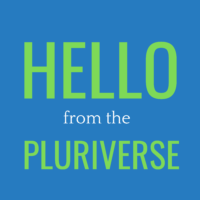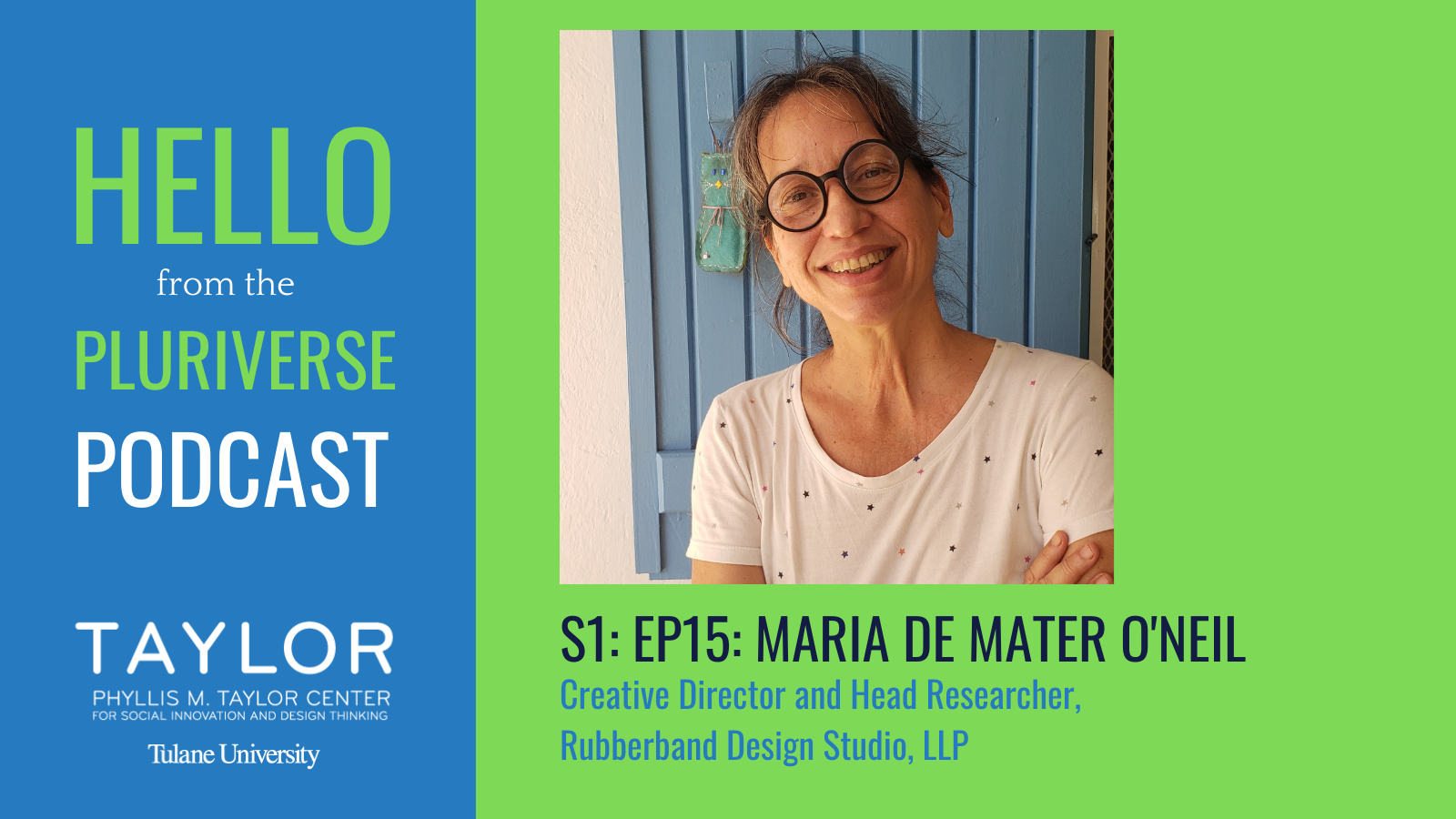Dr. María de Mater O’Neill is a designer, artist, and educator born, raised, and based in Puerto Rico. María has spent 25 years of her life as a painter, switching to design when the painting industry became too restrictive. Currently she is the Creative Director and Head Researcher for Rubberband Design Studio, LLP and is Adjunct faculty at the University of Puerto Rico. Whether it’s a small or a large-scale project, María uses her toolbox, empathy and her experiences to her advantage, working together with her clients to solve problems.
Connect with Dr. María de Mater O’Neill:
Instagram: @de.sign.books
Pluriverse Publication Chapter: Dr. María de Mater O’Neill
Written by Amy Nankin and edited by Natalie Hudanick
Download a PDF Layout of the Dr. María de Mater O’Neill of the Pluriverse Publication.
Designer, artist, and educator Dr. María de Mater O’Neill has one piece of advice to aspiring designers from the United States: to get a passport and go. Go to other places and see how the world works and if you decide to go back home, go back and change your country from the position of design. Maria was born and raised in Puerto Rico and has spent most of her life there, but travels for months every year to different countries to experience different ways of life. This, she said, allows her to empathize with others, expand her community and bring her experiences back to her life in Puerto Rico. Her experiences, research, and empathy drive her passion for design; and her path to becoming the designer she is today has been paved by many different successes and failures.
María was a painter for 25 years where she won awards for her paintings and participated in numerous painting exhibitions. Yet, she felt that the painting industry continued to become more and more restrictive, and she realized that her way of life and thinking didn’t correspond with the work she was producing, so she quit. To put it in her words, she “divorced from painting” in 2007, and became a full-time designer. All of her design work is pulled from what she calls her toolbox, a metaphorical box of tactics and ideas that she utilizes whenever she is presented with a problem. Design Thinking is one approach in her toolbox, but it sits alongside the rest of the approaches as just one of many. In much of her work today, her toolbox is one of the last steps in her problem-solving approach. When María is presented with a problem, she first listens. She has her client explain every aspect of the problem to her and then she follows them to where the problem occurs and continues to listen. She conducts interviews with people who reside in the context and listens to them and only when she feels she is able to fully define the problem do she continue to the next step in her process: deciding what can be done.
In designing, María emphasizes the importance of being comfortable with someone telling you no. Whether it’s about an idea, a solution, or any step of the designing process, she ensures that her design is user-centered, and this means understanding that saying no is part of the process. When María took on a new project designing a mentorship program for experienced cancer patients to mentor new cancer patients she went into the task like every other. She first listened, followed, defined and then designed. Ultimately, her team decided to create an illustration workshop where the cancer patients created stories through illustration. To her surprise, the patients hated it. They felt uncomfortable drawing images of themselves in an abstract way after their bodies had been through so much trauma during cancer treatment. María, having never experienced cancer, had not thought about this. She took the feedback that was given to her, appreciated that her clients told her no rather than just going along with her idea, and went back to the beginning of the design process. While being told no publicly can be difficult, it allowed her to redesign the project in a way that empowered the patients and ultimately was a success.
María has made many mistakes and experienced many failures, but she has used each one as an opportunity for self-reflection. She tries to pinpoint where she went wrong in the process and learn from it. Throughout this process, María strives to make empathy the driving point behind every decision. She believes that much of the design created by corporations has lost touch with empathy and this has caused many downfalls in design. María has a few projects in the works that aim to empathize with users and help empower individuals. One of her projects is
simplifying the terminology lawyers use to assist in the process of communication between individuals in distress who ask lawyers for help and the lawyers themselves. María hopes that by simplifying the terminology she can level the playing field and empower clients. Whether it’s a small or a large-scale project, María uses her toolbox, empathy and her experiences to her advantage while trying to find a solution.
- Instagram: @hellopluriverse
- Twitter: @hellopluriverse
- Email: taylor@tulane.edu
- Subscribe to our newsletter
The Hello from the Pluriverse Podcast aims to open up and create a space to have conservations about the pluriversality in design.
This podcast is a project of the Design Thinking for Social Innovation Program at the Phyllis M. Taylor Center for Social Innovation and Design Thinking at Tulane University.
Executive Producer: Lesley-Ann Noel, Ph.D
Sound editing
- Max Esperance
- Lavonte Lucas: xn--vonni-fsa.com, Instagram: @vonnieradass, Twitter: @vonnieradass
Hello from the Pluriverse 2020-2021 Student Team
- Max Esperance – Podcast lead
- Natalie Hudanick and Michaeline Anglemire – Editors
- Tiwani Oseni – Communications
Hello from the Pluriverse 2019-2020 Student Team

